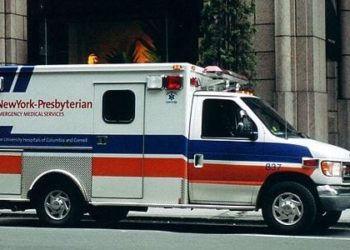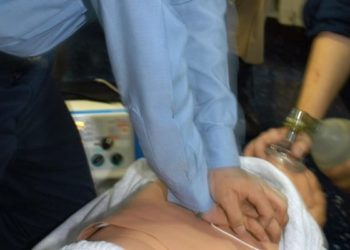#VisualAbstract: Effect of Trans-Nasal Evaporative Intra-arrest Cooling on Functional Neurologic Outcome in Out-of-Hospital Cardiac Arrest
1. In this randomized controlled trial, intra-cardiac arrest, trans-nasal evaporative cooling did not improve survival with good neurologic outcome at 90 days compared to standard systemic cooling in the ICU.
2. The time to core target temperature was shorter in the intra-nasal cooling group.
Evidence Rating Level: 1 (Excellent)
Study Rundown: There is increasing evidence that therapeutic hypothermia may increase survival with good neurologic outcome after out-of-hospital cardiac arrest. Trans-nasal evaporative cooling is a technique that can be induced intra-arrest, can be done en-route to the hospital, and leads to continuous cooling of the brain. In this randomized controlled trial, intra-cardiac arrest, trans-nasal evaporative cooling did not improve survival with good neurologic outcome at 90 days compared with standard systemic cooling in the ICU. Despite no difference in survival with good neurologic outcome, the time to core target temperature was shorter in the intra-nasal cooling group. Minor nosebleed was the most common adverse event with intra-nasal cooling.
As the time to core temperature was shortened in the intervention group, it is unclear why this intervention did not improve survival, though the study has several limitations. Prehospital and hospital personnel were not blinded to treatment. Also, the study period was long and many eligible patients with cardiac arrest were not included in the trial. Lastly, the study may have been underpowered to detect a clinically important difference. A larger trial might likely be needed to further study the effectiveness of this intervention.
Click to read the study in JAMA
©2019 2 Minute Medicine, Inc. All rights reserved. No works may be reproduced without expressed written consent from 2 Minute Medicine, Inc. Inquire about licensing here. No article should be construed as medical advice and is not intended as such by the authors or by 2 Minute Medicine, Inc









